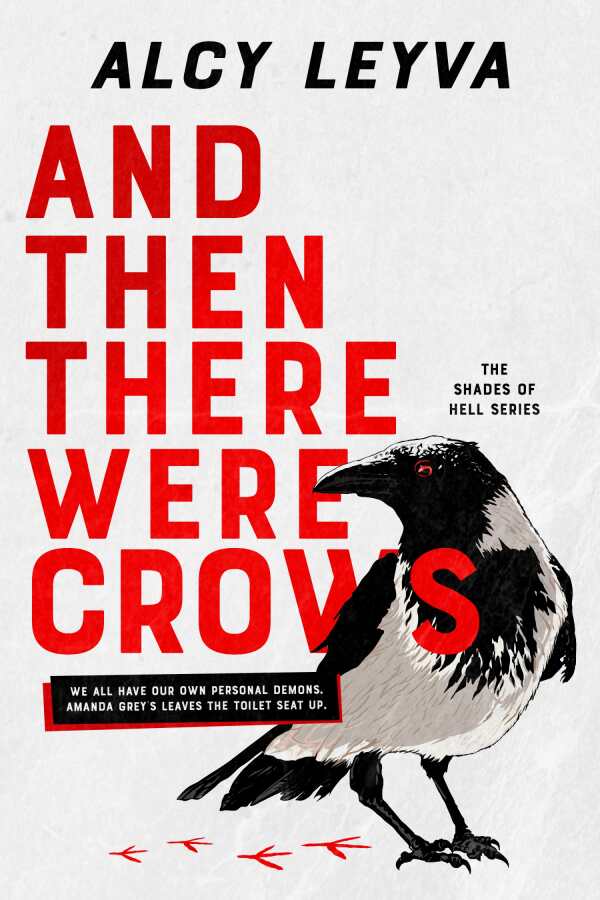And Then There Were Crows
Alcy Leyva’s And Then There Were Crows is a funny and fast novel in which angels and demons unexpectedly invade the isolated existence of the book’s endearing and prickly protagonist, Amanda Grey.
Public spaces make Grey anxious; she avoids them in her parents’ Queens apartment while they are on an extended vacation. Grey must sublet her bedroom, though. One applicant comes to see the space and attacks her; when she fights back and kills him, his body breaks open and crows climb out.
The crows are shape-shifting demons, one of whom becomes her roommate. She must find the rest of the demons before they destroy the city. Alongside a cast of characters including an angel, cult leaders, the pope, a neighbor, and her sister, Grey desperately tries to get this increasingly dire situation under control.
Grey is a sympathetic and entertaining narrator. She is snarky and always ready with a funny retort, but her vulnerability shows through. Watching her face an increasingly wild and wacky battle—one with real-life political resonances—to avert the looming apocalypse is satisfying.
Almost as big a challenge as fighting demons for Grey is negotiating increasingly complex relationships, both new and old. Grey must learn to interact with people and celestial beings of all types at the same time as she rethinks her feelings about her sister and her parents. Leyva makes Grey’s personal and supernatural battles equally interesting.
The plot is complicated, sometimes too much so. New characters and increasingly absurd situations arise at such a quick pace that they can be difficult to absorb. More successful is Leyva’s evocation of New York City, a grim, dangerous place that’s also the only place that Grey would ever want to be. Her story is a comedic urban fantasy that is both rich and delightful.
Reviewed by
Rebecca Hussey
Disclosure: This article is not an endorsement, but a review. The publisher of this book provided free copies of the book to have their book reviewed by a professional reviewer. No fee was paid by the publisher for this review. Foreword Reviews only recommends books that we love. Foreword Magazine, Inc. is disclosing this in accordance with the Federal Trade Commission’s 16 CFR, Part 255.

